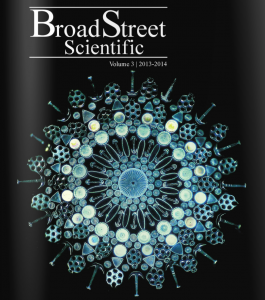One of the most memorable experiences from my high school years was being the chief editor of a student-run research journal that my classmates and I founded. The journal, named the Broad Street Scientific (after a neighboring street), was in its 3rd year when I became chief editor. It showcased some of the most innovative and insightful research projects conducted by students at the school across a wide range of disciplines.

What I enjoyed most about running the publication was the opportunity to both learn about authors’ research and help authors showcase their research at the same time. Proofreading people’s research papers made me more knowledgeable (beyond just the surface level) on a wide array of research fields, ranging from nanomedicine to hydroelectricity. But after a few weeks of reading over research papers, I caught myself falling asleep on the job. The papers were still super interesting, but editing them alone wasn’t a very engaging process.
After talking with a few of my co-editors, we decided to implement a different system to better the mutual relationship between the editors and authors. Instead of simply editing papers and sending the revisions back to the authors for corrections, I thought we should do something more interactive. I told all of my editors to sit down individually with their assigned authors and go over the research papers face-to-face, pausing to ask any relevant questions about content and grammar. While this did require each editor to invest extra time in the process, the feedback I received was extremely reassuring.
Not only did this help the editors gain a better understanding of the authors’ work, but the editing sessions also helped the authors understand which part(s) of their research were confusing and required clarification. The quality of papers in our publication improved immediately, much to the pleasure of our faculty advisers. Several of the authors also mentioned that our editing process prepared them well for symposiums and poster sessions where they were presenting.
This entire experience also improved our editorial staff’s general knowledge level regarding the research topics covered in the journal. In my opinion, what’s particularly awesome about research is the satisfaction one attains from becoming an expert on a particular topic, regardless of how specific the topic is. If you spend long hours learning about a certain topic, chances are you will retain that information. While I probably can’t tell you much about what I learned in high school biology, I still vividly remember some of the conversations I had with the Broad Street Scientific’s authors.
These same ideas can be helpful to Princeton researchers who want feedback on their work, or a chance to talk through their research challenges. You will be able to receive more constructive feedback when your proofreaders take the time to become more knowledgeable about your research field or discipline. The subsequent research-focused discussions will serve as great presentation practice, improving your communication skills in both writing and speaking. By engaging in these discussions, you’ll find that some of your explanations which you previously assumed to be obvious, actually need more detail! This certainly helped the Broad Street Scientific authors articulate their thoughts clearly, and, in some cases, led them to pursue important follow-up questions suggested by the editor. The fact that these editing sessions can produce new research questions that haven’t yet been answered is incredibly satisfying. This leads me to believe that the most effective way to proofread your research is to sit down with someone and talk about it – something I’ve been following ever since high school! Readers and researchers, what do you enjoy most about discussing or presenting your research?
— Kavirath Jain, Engineering Correspondent

